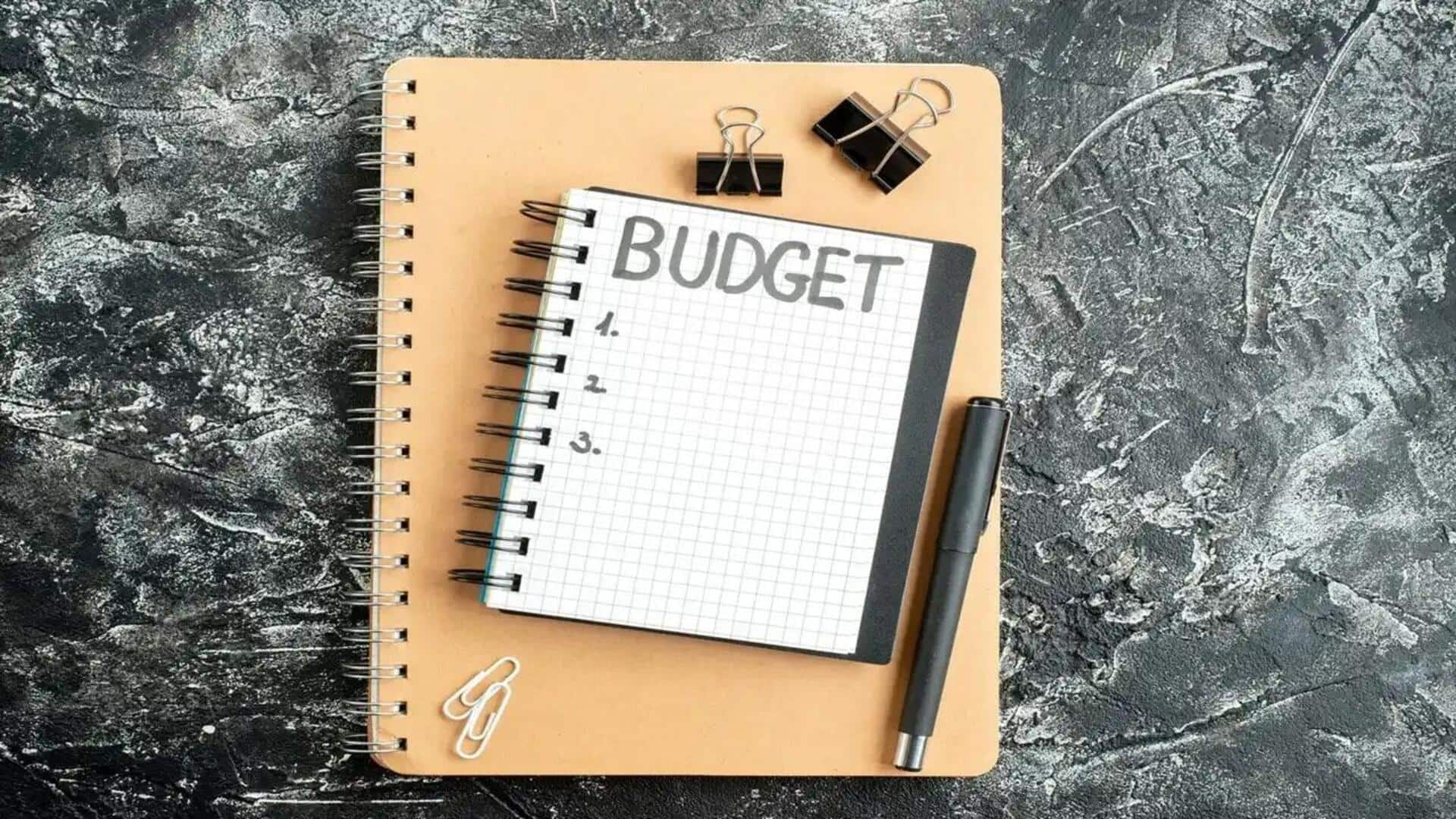
Common budgeting mistakes that could derail your financial goals
What's the story
Budgeting personal finances can be a daunting task, especially if you're new to managing money.
Most people commit common mistakes that can throw their financial goals off track.
Knowing these pitfalls is key to having a healthy financial life.
Here's a look at some of the most common mistakes people make while budgeting and how to avoid them, for a more stable and secure financial future.
Overlooked costs
Ignoring small expenses
Small expenses often go unnoticed but can cost you a lot over time.
Items like daily coffee purchases or subscription services may seem minor, but can add up to huge sums monthly.
Keeping track of every expense, no matter how small, is essential for an accurate budget.
Regularly reviewing these costs helps in identifying unnecessary expenditures and reallocating funds toward savings or debt repayment.
Inflexible planning
Failing to adjust the budget
Many people create a budget and forget about it, failing to adjust it as circumstances change.
Life events like job changes or unexpected expenses require you to modify your financial plan.
An inflexible budget doesn't reflect the current realities and may lead to overspending or missed savings opportunities.
Regularly revisiting and adjusting your budget ensures it stays relevant and effective in achieving your financial goals.
Unrealistic expectations
Not setting realistic goals
Setting unrealistic financial goals can only frustrate you and make you fail at budgeting.
Goals must be SMART (specific, measurable, achievable, relevant, and time-bound).
For example, saving ₹100,000 in a month without considering what you earn is unrealistic for most people.
Realistic targets keep you motivated and give you a clear roadmap to manage finances efficiently.
Lack of preparedness
Neglecting emergency funds
An emergency fund serves as a lifesaver during unexpected situations, such as medical emergencies or abrupt job loss.
Most people ignore this critical part of budgeting due to other overriding priorities or by underestimating risks.
Without an emergency fund, unforeseen expenses may result in debt or the use of savings intended for other goals.
Creating an emergency fund as a priority ensures you are better prepared for life's curveballs.
Credit dependency
Relying solely on credit cards
Relying heavily on credit cards also leads to high-interest debt that's hard to repay.
This can further damage credit scores and affect future borrowing capabilities.
Using credit cards wisely and paying off balances each month is crucial for maintaining financial health.
Avoid excessive reliance on credit by managing it within your means, ensuring fiscal responsibility throughout your financial journey.